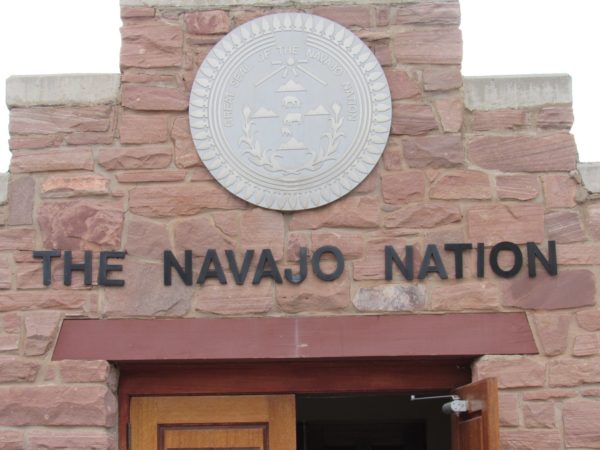
- Details
- By Native News Online Staff
WINDOW ROCK, Ariz. — On Tuesday, the Navajo Department of Health, in coordination with the Navajo Epidemiology Center and the Navajo Area Indian Health Service, reported 87 new Covid-19 positive cases for the Navajo Nation and eight more deaths. The total number of deaths is now 985 as of Tuesday. Reports indicate that 14,196 individuals have recovered from Covid-19, and 229,782 Covid-19 tests have been administered. The total number of positive Covid-19 cases is now 27,665, including five delayed reported cases.
Navajo Nation Covid-19 positive cases by Service Unit:
- Chinle Service Unit: 5,104
- Crownpoint Service Unit: 2,736
- Ft. Defiance Service Unit: 3,047
- Gallup Service Unit: 4,406
- Kayenta Service Unit: 2,509
- Shiprock Service Unit: 4,789
- Tuba City Service Unit: 3,279
- Winslow Service Unit: 1,759
* 36 residences with Covid-19 positive cases are not specific enough to place them accurately in a Service Unit.
On Tuesday, the state of Arizona reported 4,748 new cases, Utah reported 1,411, and New Mexico reported 602 new cases.
“Many of our Navajo people are receiving the CARES Act Hardship Assistance checks. We, along with the public health experts, strongly urge everyone to continue staying home as much as possible and avoid travel to border towns and other cities. When we move, the Covid-19 virus moves and puts us at greater risk. We continue to stress that the safest place to be is at home here on the Navajo Nation. Stay local, stay safe. Keep your guard up and keep taking all precautions to keep yourselves safe and healthy. We are in this fight together against Covid-19,” said Navajo Nation President Jonathan Nez.
On Monday, Jan. 25. the latest Public Health Emergency Order took effect with the following provisions:
- Extends the Stay-At-Home order requiring all residents to remain at home 24-hours, seven days a week, with the exceptions of essential workers that must report to work, emergency situations, to obtain essential food, medication, and supplies, tend to livestock, outdoor exercising within the immediate vicinity of your home, wood gathering and hauling with a permit.
- Implements a daily curfew from 9:00 p.m. (MST) until 5:00 a.m. (MST) seven days a week.
- Essential businesses may operate between the hours of 7:00 a.m. (MST) and 8:00 p.m. (MST) daily, including gas stations, grocery stores, convenience stores, hardware stores, laundromats, restaurants, food establishments, banks and similar financial institutions, and hay vendors, provided they comply with provisions outline in the order to help protect employees and the public from Covid-19.
- Refrain from gathering with individuals from outside your immediate household and requiring all residents to wear a mask in public, avoid public gatherings, maintain social (physical) distancing, remain in your vehicle for curb-side and drive-through services.
The Nez-Lizer Administration will host an online town hall on Wednesday, Jan. 27, 2021 at 10:00 a.m. (MST) on the Nez-Lizer Facebook page and YouTube channel to provide more updates.
For more information, including helpful prevention tips, and resources to help stop the spread of Covid-19, visit the Navajo Department of Health's Covid-19 website: https://www.google.com/url?q=http://www.ndoh.navajo-nsn.gov/COVID-19&source=gmail&ust=1611797578166000&usg=AFQjCNEghNHEtLuYW5iBJGnvyroSW4x4NQ">http://www.ndoh.navajo-nsn.gov/Covid-19. For Covid-19 related questions and information, call (928) 871-7014.
More Stories Like This
Native News Weekly (August 25, 2024): D.C. BriefsNavajo Nation Mourns the Passing of Former Vice President Rex Lee Jim
Deb Haaland Earns Endorsement From Communications Workers of America Local 7076
University Soccer Standout Leads by Example
Two Native Americans Named to Democratic Congressional Campaign Committee's“Red to Blue” Program
Help us defend tribal sovereignty.
At Native News Online, our mission is rooted in telling the stories that strengthen sovereignty and uplift Indigenous voices — not just at year’s end, but every single day.
Because of your generosity last year, we were able to keep our reporters on the ground in tribal communities, at national gatherings and in the halls of Congress — covering the issues that matter most to Indian Country: sovereignty, culture, education, health and economic opportunity.
That support sustained us through a tough year in 2025. Now, as we look to the year ahead, we need your help right now to ensure warrior journalism remains strong — reporting that defends tribal sovereignty, amplifies Native truth, and holds power accountable.
 The stakes couldn't be higher. Your support keeps Native voices heard, Native stories told and Native sovereignty defended.
The stakes couldn't be higher. Your support keeps Native voices heard, Native stories told and Native sovereignty defended.
Stand with Warrior Journalism today.
Levi Rickert (Potawatomi), Editor & Publisher

